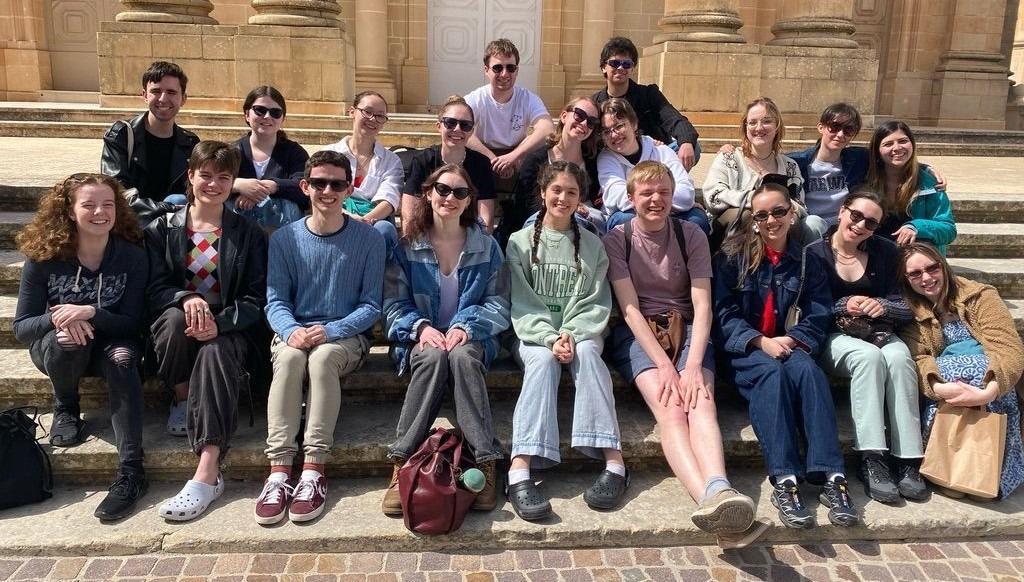The tour effect: Do booze, bonding, and breaking points define Warwick Sport club trips?
At Warwick, sports club tours are not really about the sport – in fact on the trips, you are more likely to lose your voice from singing in the club than from shouting on the pitch.
Whilst some domestic tours might involve a friendly fixture or two, international trips often feature no sport at all.
Despite this, these tours have become a legendary, and sometimes controversial, feature of the University’s club life as every year hundreds of students take to planes, coaches and trains to travel with their teammates.
Often wearing matching t-shirts, Warwick’s tour goers do everything from sightseeing to circle while simultaneously falling out with one another and building new friendships.
75% of domestic tour goers purchase tickets without knowing the destination
The Boar Sport has spoken to numerous students who have travelled to various countries with their clubs. These seasoned tour goers answer questions about cost, culture and what a trip with your university team actually involves.
Warwick’s clubs typically go on two tours a year: one domestic (within the UK), and one international (often to Europe). They are usually coordinated entirely by one student – the club’s tour secretary – who organises everything for over 20 travellers.
Domestic tours usually happen during a weekend in term one and the location of them is often a mystery until arrival – 75% of domestic tour goers purchase tickets without knowing the destination.
Some clubs take it further for international tour and tell their freshers that they will be travelling across continents to destinations like Canada or Vietnam when in reality they are bound for a European holiday.
Usual domestic tour destinations are major UK cities like Edinburgh, Bristol, or Leeds.
Half of those who attend these British city trips enjoyed parts of the tour but not others, according to The Boar Sport’s poll.
Some said the experience was “intense”, especially as first years, or difficult due to not yet being fully integrated in the club.
Others noted that “a couple of things didn’t go to plan” – which is not particularly surprising given the DIY nature of the trips’ organisation.
Like domestic tour, only half said they fully enjoyed their time on international tour.
Described as an “all-hours, all-week sort of experience” that “shatters you by the end”, international tours are longer and occur later in the academic year.
This increased length leads to tension and drama – one student explained how being around a group “all the time in a new place” created “conflict”.
Others cited “generous European measures of alcohol, sleep deprivation” and “heightened emotions”.
Participants go sightseeing, hop on boat tours with unlimited alcohol, and become chefs in local cookery classes
In one case, a club faced a “wellbeing/sexual misconduct concern” while away showing how the lack of structure can sometimes escalate existing problems and cause serious issues.
“Tours can be awful and upsetting at times”, summarised one respondent. These difficult moments are amplified by being away from Warwick services like ‘Report + Support’.
Club executive members, such as tour secretaries and welfare officers are however usually on hand to offer a listening ear and help if necessary.
While these negative experiences are not infrequent, taking dozens of university students to destinations like Budapest, Greece, and Prague can be “really great”. Participants go sightseeing, hop on boat tours with unlimited alcohol, and become chefs in local cookery classes.
Individuals spoke on “making new friends, making memories, experiencing a new place, and unwinding from a stressful university term”.
Although, these memories and friendships do come at a cost, literally.
Tours can cost hundreds of pounds – in total sailing international tour ended up costing one of our respondents around £600 which set them back for “the next two summers”.
As a result of the price tag, all of our respondents considered, or knew someone who considered, not going on international tour because of the cost – 75% said the same regarding domestic tour.
The hundreds that members fork out for their tickets is not all, once at the destination tour goers often have to pay for their food, travel and activities.
In Budapest, one Warwick student was even forced to pay a fine on the subway due to not understanding the local transport system.
Tour secretaries do, however, try everything to make the initial ticket prices as affordable as possible.
One former tour secretary told The Boar Sport that she “contacted lots of different hostels before finally finding one that was both in a great location and within budget”.
In the face of the ups and downs, these trips create bonds that often outlast a university degree
This was one of the many tasks that she undertook to plan the trip – citing being “organised and confident” as crucial qualities that every tour secretary should have.
Despite its difficulty, this individual found the job “incredibly rewarding” stating that the position means that “your experience of tour will be different from everyone else’s” as but that this is worth it when you get to watch “everyone come together”.
This coming together – through shared experiences, laughter, and the occasional crisis – is what lies at the heart of Warwick’s tour culture. In the face of the ups and downs, these trips create bonds that often outlast a university degree.
The holidays offer a rare chance to step outside lecture halls, or off the court, and immerse yourself in new places with a large group of peers.
As The Boar Sport’s poll made excruciatingly clear, Warwick’s sports club tours are, for better or worse, hard to forget.

Comments